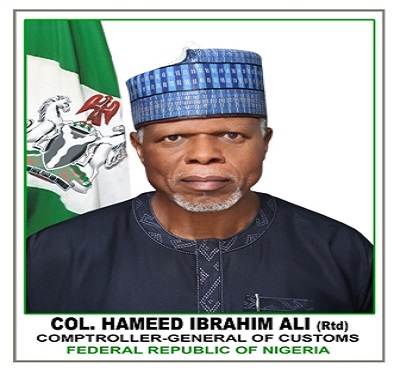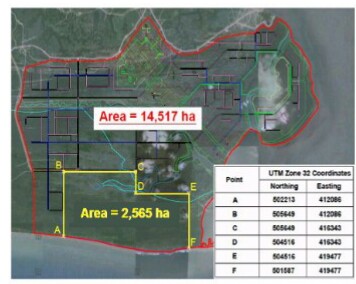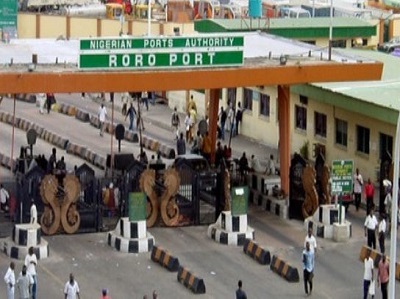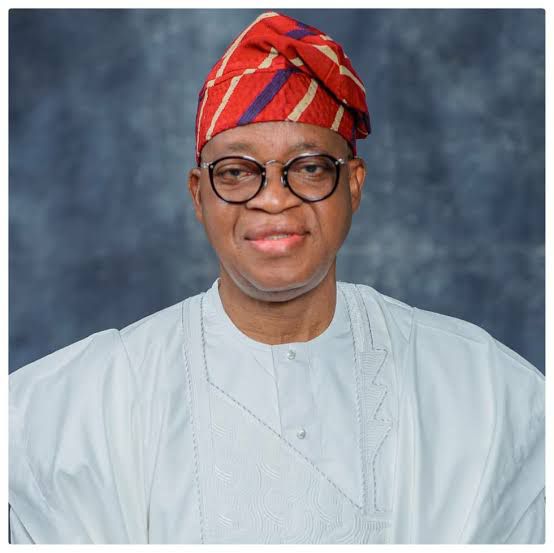‘Why all Nigerian ports suffer dilapidated road network’
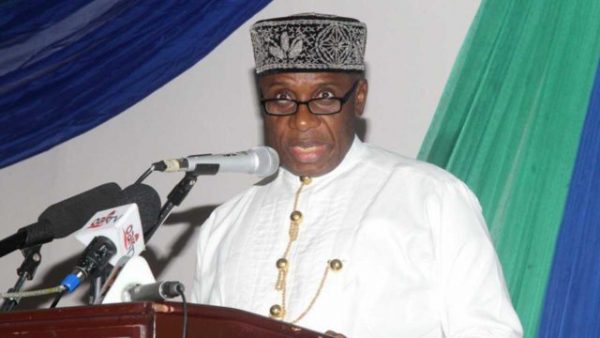
• Govt urged to unbundle Nigeria’s rail system for ports efficiency
• Amaechi, Saraki tasked on intermodal transport system
The dilapidated nature of major roads linking seaports across the country has continued to cause setback for trade facilitation thereby hindering the much-anticipated economic growth.
This situation, according to maritime sector operators may not be unconnected to lack of planning by the successive governments and clash of interest by various ministries overseeing the maritime sector. These Includes the Ministry of Works (managing the roads); Ministry of Transportation (managing the railway) and Ministry of Finance (overseeing the customs).
This situation, according to stakeholders has caused the nation appreciable fortunes being lost to other neighbouring countries, which now attract Nigerian cargoes.
Welcoming the Minister of Transportation, Rotimi Chibuike Amaechi and the Minister of States for Transportation, Gbemisola Ruqayyah Saraki onboard, the concerned stakeholders in the maritime sector urged the new administration to focus on ports development and ensure the berth of a viable intermodal transport system, in order to take Nigeria out of the avoidable mess.
Investigations showed that almost all the seaports across the country is facing challenges of poor road infrastructure which is hindering the evacuation of cargoes to various destinations. From Lagos to Onne, Port Harcourt, Calabar Ports and Onitsha river port, the stories are not different, as importers and port users groan under collapsed road infrastructure.
To this end, the operators in a chart with The Guardian suggests that rail network should be given priority by the present administration, while the road arteries to the ports should be fixed without any further delay.
The Chief Executive Officer and Managing Director, ECM Terminals (Ecomarine), Adedayo Moruf Balogun, said all Nigerian ports are suffering from bad roads because of the government’s failure to plan.
“If you look at intermodal transport system, it means the complement of the road, rail and the port. It means that as you are looking at the expansion of the port you should also be looking at the adjoining infrastructure such as road and rail. But, our failure to address that aspect through proper planning is what resulted to the current problem and it has become a common feature for all the ports in Nigeria.
“What this means is that we must develop a template that allows us to expand infrastructure. The port capacity has improved so there must be a commensurate development in supporting infrastructure especially the road and the rail,” he said.
Balogun lauded the presidency for appointing two ministers for the transport sector, saying that, “it shows that the government has come to sudden realisation that the transport sector needs a lot of support”
Congratulating Amaechi and Saraki for the new office, he expressed hope that Amaechi’s coming back is to consolidate on the initial gains, as this regime would provide opportunity for him to encourage operations in the Eastern ports particularly the infrastructural development and other policy frameworks.
“We appreciate his efforts in positioning the transportation sector but we will better appreciate if more effort is geared towards dredging of the Calabar channel, which is also critical to driving the economy of South-East and North Central regions,” he added.
Noting that rail is a critical infrastructure that drives efficiency of port operations, particularly the transport logistics value chain, he said: “Ideally, every port must have rail connectivity. This is a very good business model that is in practice all over the world. If Nigeria as a nation as realized the need to revive the old rail and invest in the standard gauge as a supporting infrastructure, it is a welcome development. So we will urge the government to ensure successful completion of the project,”
Giving the fact that the government resources are also constrained, Balogun said it is advisable for government to look critically into unbundling the Nigerian railway, so as to allow for private sector participation, adding that this will hasten the development of the transport sector.
He enjoined the various government ministries to work together as a team. “For example the rail system is domiciled under the ministry of transportation, while the road network is under the ministry of works, and both rail and road are both critical to evacuation of goods from the ports.
“In Calabar, we are having serious challenges such as the dredging of the water channel coupled with the bad roads. From Idukpani junction to Itu-Ikot Ekpene road which contract was awarded to Julius Berger has been under construction for years, but no meaningful progress has been made. So, we want to appreciate a more collaborative effort between the ministry of transport and the ministry of works to ensure speedy completion of the roads that serves as arteries in and out of the port,” Balogun said.
Spokesperson, Seaport Terminal Operators Association of Nigeria (STOAN), Bolaji Akinola said poor nature of the roads are hindering port operators thereby making it difficult for terminal operators to fully utilize their facilities.
Noting that Lagos ports are not congested, Akinola said the major challenges facing the ports are the access road, which have become severely dilapidated.
According to him, the ports in Lagos have capacity to handle beyond the volume of cargo they are handling at the moment if government pays attention to the issue of dilapidated port access roads as well as put an end to the manual handling of cargo clearing processes deployed by the Nigeria Customs Service.
He said port operation is not about the size of the port only, but about the efficiency of the connecting facilities around the port.
“I think the major problem we have at hand is that successive governments allowed the port access roads to degenerate so bad. The two main entry routes into the Lagos ports are the Ijora-Wharf Road and the Apapa-Oshodi Expressway. The Apapa-Oshodi Expressway, which is the major road to the ports with six lanes, has packed up several years ago. Every petroleum tanker, port truck and trucks belonging to the many manufacturing concerns in Apapa now use the narrow Ijora-Wharf Road, which is not even in a perfect state. These results in the inevitable chaos we see on the roads. If these roads are repaired as they should be, the chaos will disappear,” Akinola said.
He emphasized that the ports in other parts of the country are not immune to the challenges of bad road.
He said the Onitsha River Port, recently constructed by the National Inland Waterways Authority (NIWA), is not functional because of bad roads.
“Also, if you visit the ports in Rivers State – Onne and Port Harcourt Ports – and the ones in Delta State, it is the same story of dilapidated roads. The roads are bad and trucks spend several hours trying to get in and out of the ports,” Akinola said.
He called on the Federal Government to embark on “urgent comprehensive repairs” of the roads leading to all the ports in the country, especially the Lagos ports. He also tasked the government on the provision of functional truck parks in Apapa to stop trucks from parking on the roads and impeding the flow of traffic.
“We have spoken in the past also about the need to develop alternative modes of haulage in the country. The over-reliance on road haulage is not healthy or sustainable for the country. The Federal Government will need to get the rails working so that cargoes can be moved around the country by rail. NIWA should also focus its energy on enhancing waterways transportation, as some cargoes can also be moved to their final destinations by the waterways,” Akinola added.



